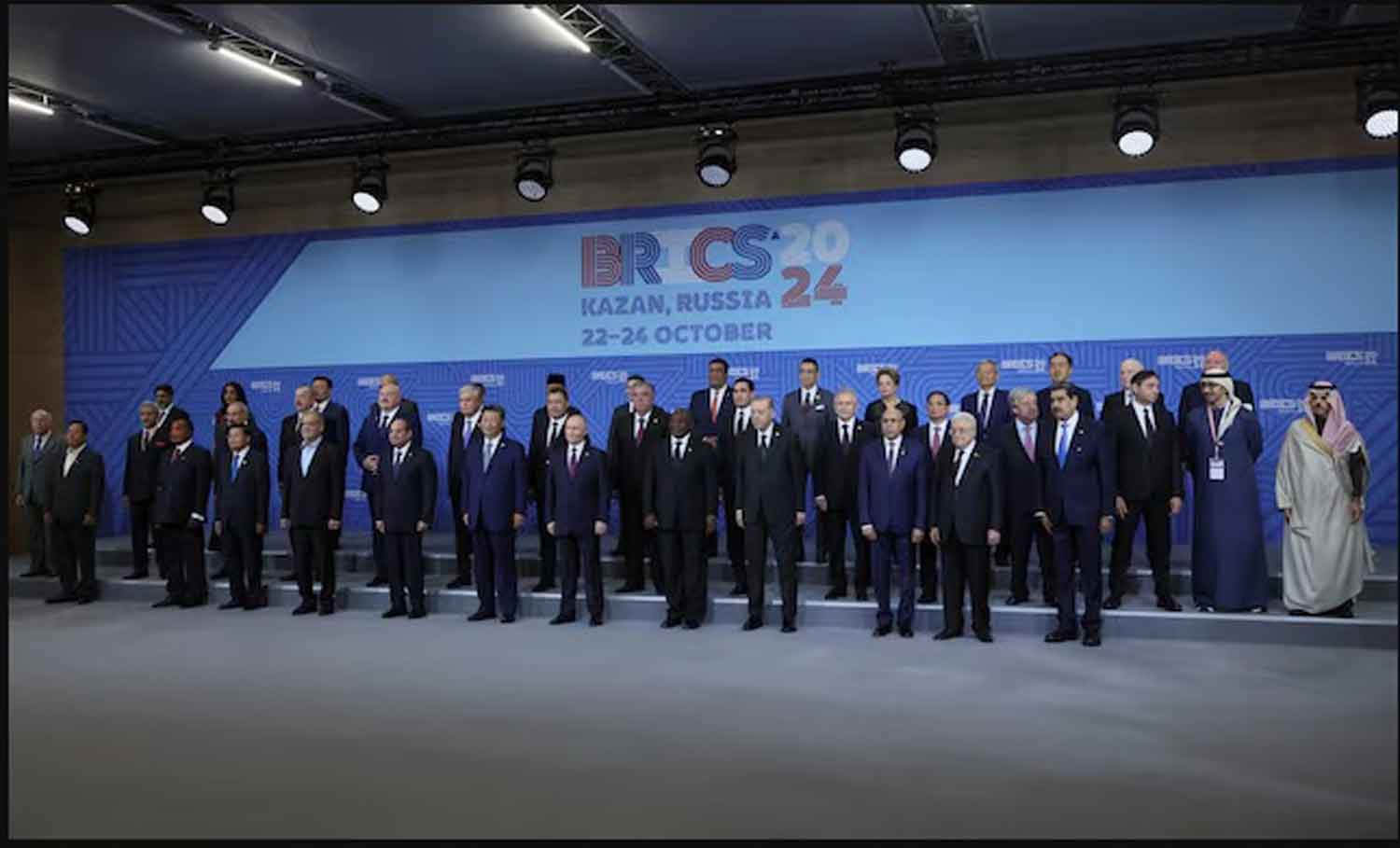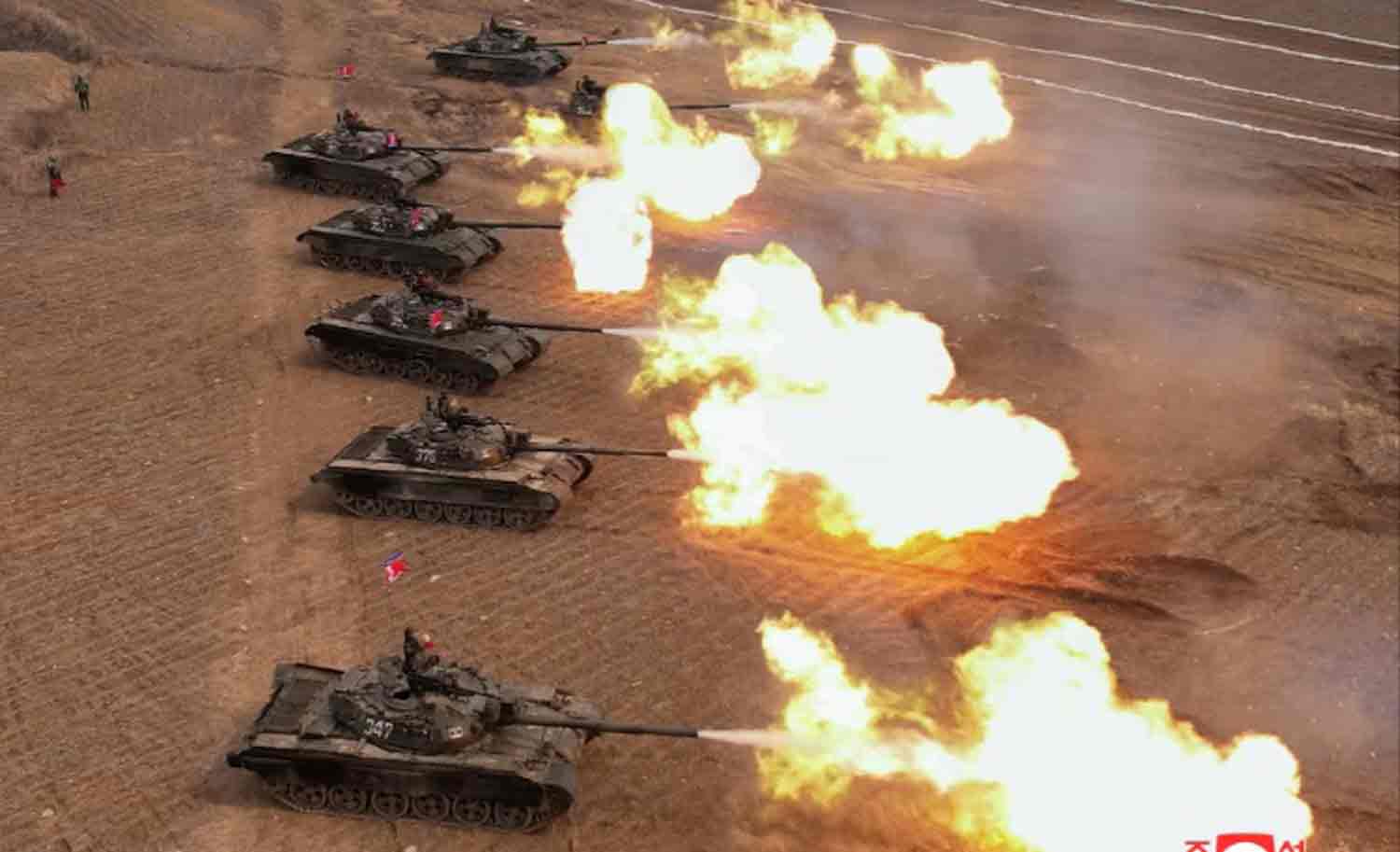As concerns regarding the U.S. elections loomed over this week’s gathering of global finance leaders in Washington, a beaming Vladimir Putin was in Kazan, Russia, welcoming representatives from BRICS nations that collectively account for nearly half of the world’s population.
While the BRICS coalition of emerging economies is still far from competing with the International Monetary Fund (IMF) or challenging the supremacy of the U.S. dollar, the recent summit with its newly added members demonstrated clear indications of its increasing influence.
The final statement was verbose yet lacked specific details on establishing new payment and trade systems aimed at circumventing Western-dominated frameworks, particularly in light of the sanctions imposed on Russia following its invasion of Ukraine. Nevertheless, the summit achieved several diplomatic successes, including the attendance of U.N. Secretary-General Antonio Guterres and Turkish President Tayyip Erdogan, who has shown interest in joining the BRICS alliance. Additionally, India and China utilized the summit to highlight their renewed efforts to strengthen bilateral relations.
For Putin, the significant attendance of numerous leaders in Russia for the discussions served to challenge the perception that his nation is isolated from the global economy. Alicia Garcia-Herrero, a senior fellow at the Bruegel economic think tank, remarked, “Western capitals are failing to grasp the significance of this situation. It signals that the West is losing its influence.”
While Kazan may not achieve the historical significance of Bretton Woods, the New Hampshire location where, 80 years ago, the victors of World War II established a monetary framework that would dominate the global economy and reinforce dollar dominance, this week’s discussions highlighted a growing discontent with a system perceived as inadequate for much of the world. There has been a notable decline in capital flows to developing economies over the last decade, and emerging nations remain underrepresented in IMF decision-making processes.
Mo Ibrahim, a Sudanese-British entrepreneur who leads a foundation focused on governance in Africa, remarked to Reuters, “Observe the number of individuals eager to apply for membership in BRICS.” According to Putin, over 30 nations have expressed interest.
Ibrahim further noted, “People are recognizing institutions that lack true representation or democratic values—structures established around 1945 following the world war, with little change since then.”
Since its inception in 2006 by Brazil, Russia, India, and China, the group’s performance has been inconsistent. Notably, its formation has not significantly impacted the growth-per-capita trajectory of these four founding countries, as highlighted by Mario Holzner from the Vienna Institute for International Economic Studies (wiiw).
Additionally, the $5 billion in loans anticipated by the BRICS’ New Development Bank (NDB) this year is dwarfed by the $72.8 billion allocated by the World Bank through credits, loans, and grants. Many of the initiatives are still in the early stages of development. Holzner commented, “They may establish some basic money transfer systems that could function at a minimal level, but it is unlikely to be a transformative change.”
HEDGING BETS
Numerous analysts point out that as the group expands, disparities in size and influence among member nations, along with competing national interests, will complicate the process of reaching consensus on collaborative initiatives. However, those eager to join perceive it as a practical trade forum, already representing a significant portion of global trade. “There is substantial potential in connecting these corridors,” stated Pakistan’s Finance Minister Muhammad Aurangzeb during the IMF meeting in Washington, expressing the country’s interest in joining BRICS.
While many experts are skeptical that BRICS’ plan to establish its own payment system will soon rival the dollar’s dominance, such efforts resonate with nations concerned about the possibility of facing Western sanctions in the future. “By creating this alternative framework, you are essentially preparing yourself geopolitically for potential conflicts with the West,” remarked Hamish Kinnear, a senior analyst at global risk intelligence firm Verisk Maplecroft, who characterized BRICS as “a reflection of the evolving global order rather than its catalyst.”
In fact, rather than being a direct substitute for the IMF, as some have suggested, many current and prospective BRICS members view it as a strategic opportunity to mitigate risks in an increasingly volatile geopolitical landscape. “For China, BRICS is not merely a strategic and economic alliance,” noted Shi Yinhong, a professor at the School of International Studies at Renmin University of China, highlighting that many BRICS nations are simultaneously strengthening their relationships with Western countries.
Discover more from Defence Talks | Defense News Hub, Military Updates, Security Insights
Subscribe to get the latest posts sent to your email.





